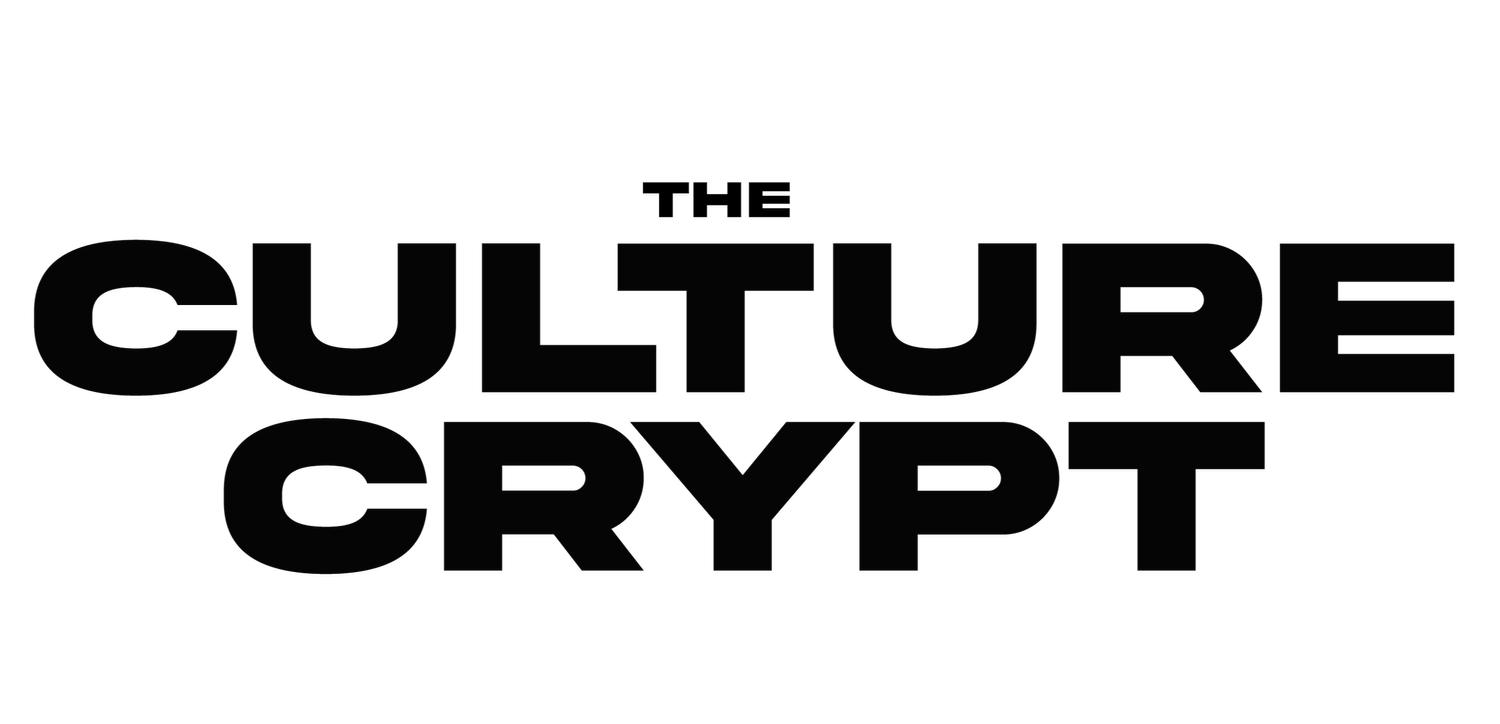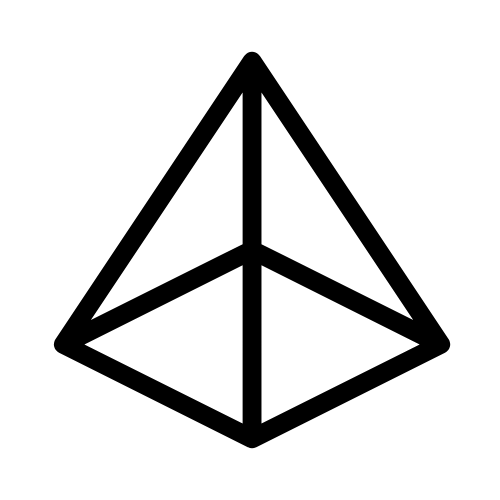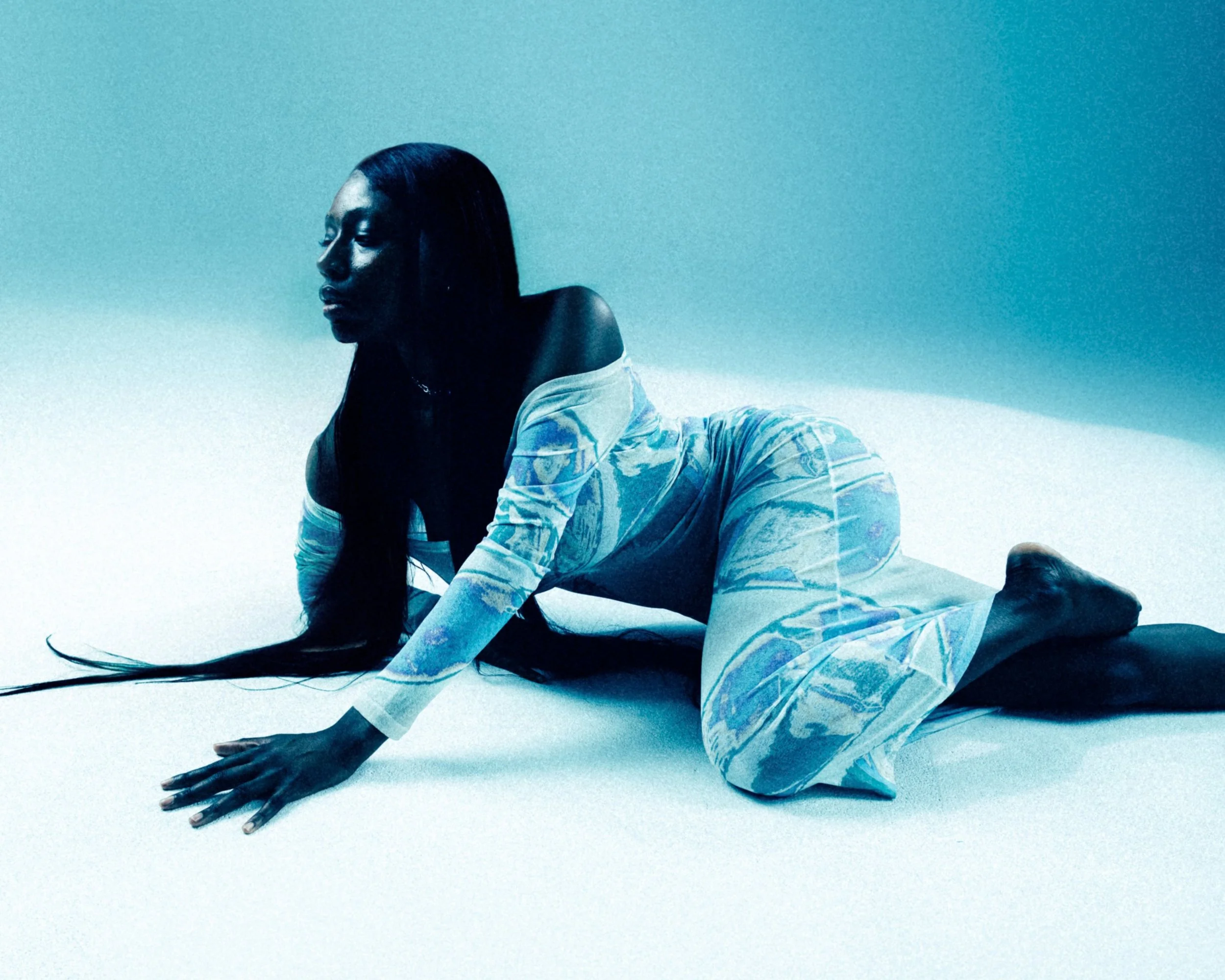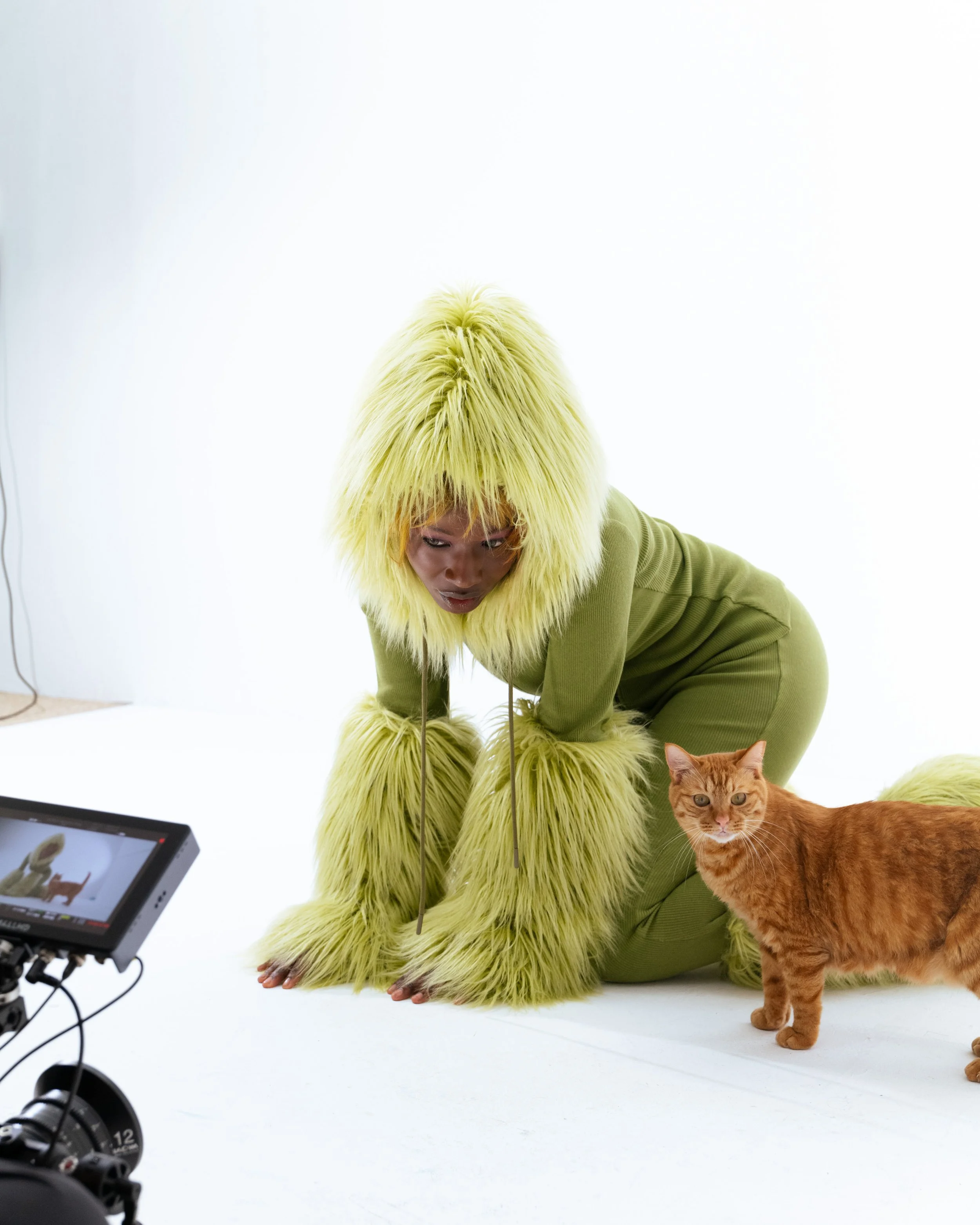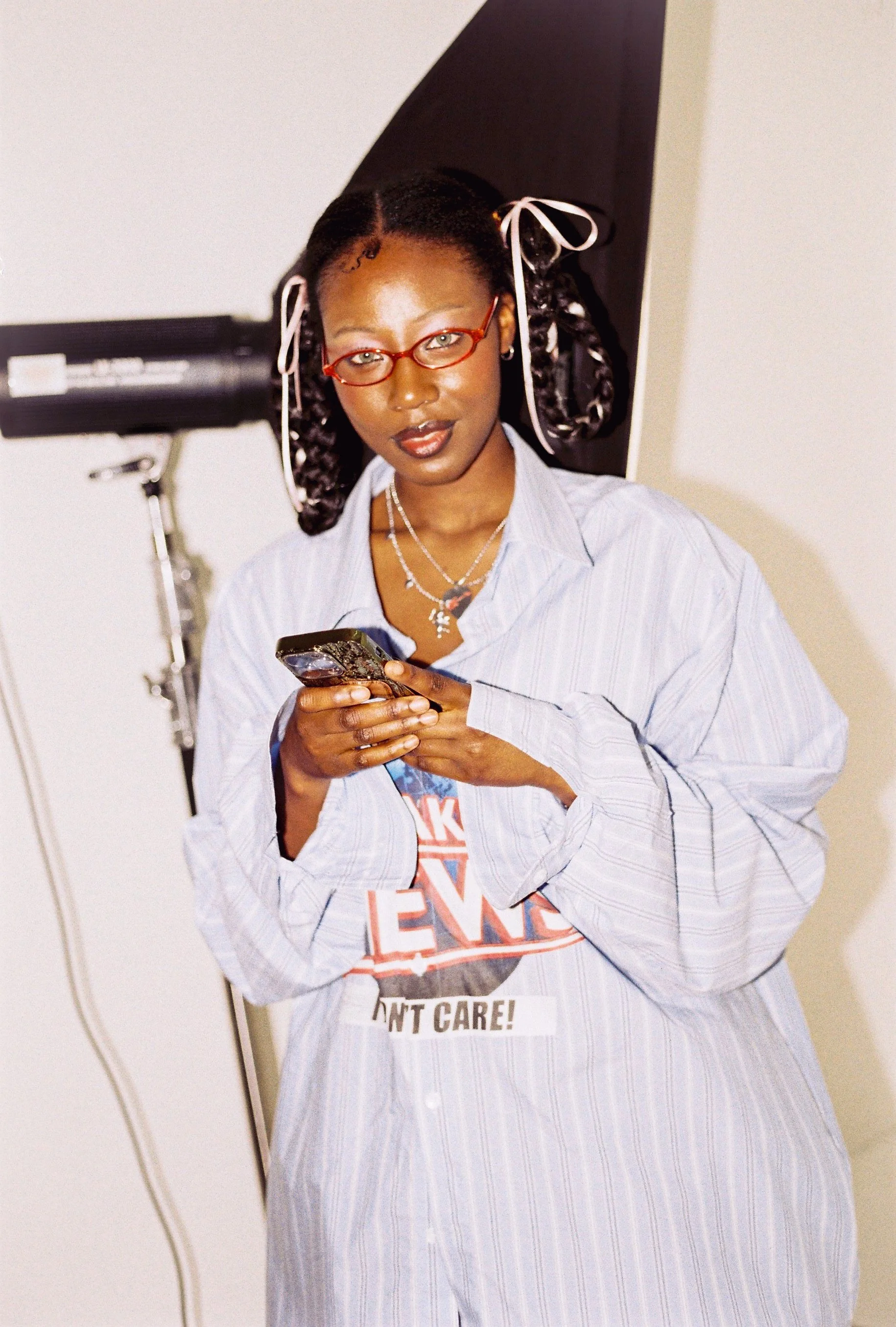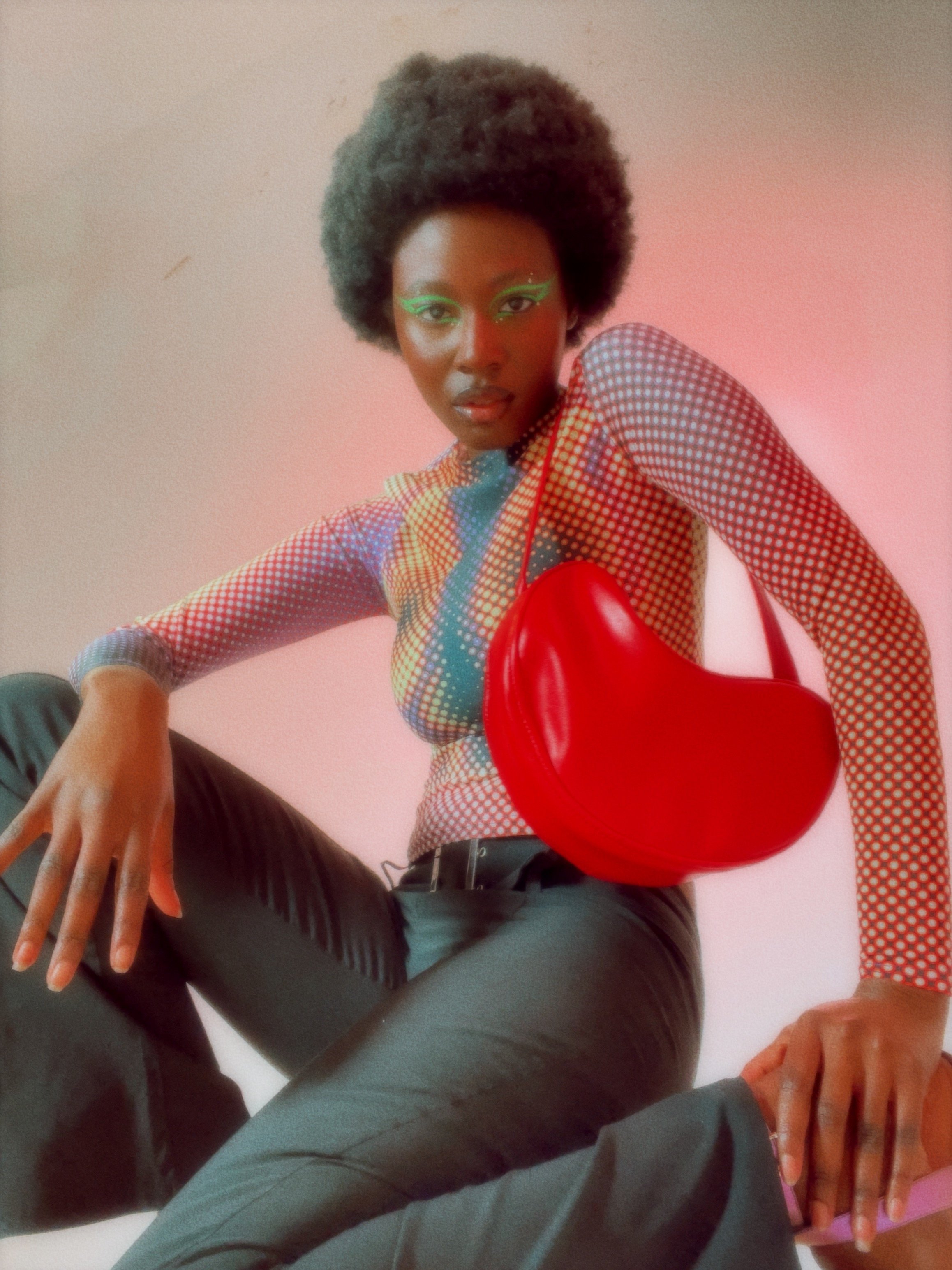"I Want to Improve the Representation of Black Women in Korea, One Step at a Time": Donna Goldn Speaks
Belgian artist Donna Goldn talks through her creative processes and what it means to be a Black musician in South Korea.
"I used to secretly record covers and post them to SoundCloud. I'd listen to them back and be like, 'Oh…maybe this is not for me,'" confessed Donna Goldn. Didn't we all? Yet for Donna Goldn this was only a short delay to what we now see on our feeds. The Belgian artist's neo-soul and R&B sound, paired with her visuals, is what reeled us in and kept our attention. Oh, and most of her music? It's in Korean.
Donna Goldn has been on our radars from as early as 2021, when she took over algorithms with skits and parodies impersonating rich K-Drama villains, which we loved, yet hated, on our screens. Showing off her Korean-speaking skills through these videos brought her audience together. However, it was January 2023 when Donna's social media accounts changed to introduce us to a new era.
Filled with anecdotes from her time in South Korea and cultural nuances, Donna's segway into music felt natural. Her interest in the Korean language helped her write lyrics on top of famous beats. Her most famous rendition is "Mashiketta", a parody of Doja Cat's viral breakout track "MOOO!".
What started as a final negotiation plea to raise her grades resulted in Donna's first trip to South Korea fresh out of secondary school. "My Mum agreed [to letting me go after graduation] because, technically speaking, there was no way I could've recovered from all the bad grades I was getting.
"After I passed and graduated, my Mum realised she had to let me go on this trip. I was out there negotiating with my Mum asking if I could go for two months […] in the end she agreed on a month and a half." After several visits and a Media, Film & TV joint honours degree, Donna now resides just outside of Seoul in Gimpo, where she lives as a creative nomad, working as a musician and model.
From the music of Erykah Badu, Sade and System of a Down playing through her headphones in her downtime to Donna's Mum being a choir leader at church as she was growing up, music has always been part of her life. "You know when you wake up on a Saturday, and you hear music blasting and you know it's time to clean? My Mum's go-to was always gospel."
The 28-year-old was just off the back of a packed weekend at two of the city's most prolific music spaces when we spoke: Cakeshop and Seoul Community Radio. "It was kind of a full circle moment in a way.
"When I first came to Korea back in 2015, everyone was trying to get into [Cakeshop]. It was really crazy for me to be able to perform in this venue that I used to party at."
We caught Donna's set at Seoul Community Radio the following night, where she made her debut into Seoul's techo scene, its building being tucked away in the backstreets of Itaewon where dance music was heard surging down the streets long before seeing its neon green signage.
It was the release night of Seoul-based collective Fragmented Service's second compilation album, C-02, where Donna along with producer Mazefromfar were debuting their latest single "Brain Saponification". The trance-like, dark techno track perfectly encapsulates the experience of being under sonic hypnosis. With a selection of DJs and producers, C-02 captures the fluidity of Seoul's current electronic music scene.
The Culture Crypt caught up with Donna the following day back in late October to talk about her new single, her up-bringing in Belgium and what it means to be a Black woman making music in South Korea.
The Culture Crypt: Firstly, congrats on your latest single, "Brain Saponification" with Maze! How did that come about?
Donna Goldn: "Maze is part of this collective called Fragmented Service, and they were preparing their second compilation album at the time. He asked me if I was down to do a track together, and that's how 'Brain Saponification' came about!
He was telling me what he was expecting when he was making that song and what he was thinking about, and I really could really relate to that. We're both foreigners in a foreign country [yet] we also have our cultural heritage. How society expects you to be back home but you're out here living abroad doing something completely different."
"Brain Saponification" is a techno-leaning track which is a new sound to your discography. How was your approach to songwriting this time round?
"For this song [Maze] sent me these beats for me to sing over. I literally went to Ferments (a bar in Seoul) and asked for a notepad from the boss and I started writing lyrics. But when I did a session with Maze it was a disaster."
How so?
"We started, and we were like, 'Oh my God, we're gonna fuck this shit up,' but when we started working on it, the beat changed, the vibe changed. We were just trying to record but nothing felt right. We didn't want to admit that we were disappointed, but we just called it a day.
We went our separate ways and then we were like, maybe we should sit on it and actually talk about it again because the deadline was literally like two days later. When we went home, he sent me a different beat, which is the version that is out now. I recorded from home and then it was exactly what we needed."
“I think the way I started music is quite untraditional [...] I just jumped into the shark tank unprepared.”
Your debut single, "Mashiketta", garnered a lot of attention for its blend of catchiness, Korean, and that it's a parody of Doja Cat's "MOOO!". What was the initial response like?
"What's funny about that is the amount of times I reposted those videos and how it was expanding. I first posted it on YouTube back in 2018 and there wasn't a lot of response. Then during the pandemic I started my TikTok account and reposted it there, that's when people started loving it. Then, a year or two later, I posted it again, and that's when it went crazy and reached Korea.
I released 'Mashiketta' last year, and it started getting serious. There was this Korean account, HIPHOPPLAYA, that reposted the video, and that was right before I was getting ready to come back to Korea [to] actually release the track. It was nice because it created this momentum.
I think the way I started music is quite untraditional. People had been requesting me to release those songs [from the parodies], and it was kind of by popular demand. I just jumped into the shark tank unprepared."
How do you maintain a balance between your playful and relatable personality while actively creating music and making sure people take you seriously as an artist?
"I'm a very impulsive person. [Although I am playful], I just wanna be this mysterious girl, not appearing online, only posting once then dipping for a few months. There's a clash between my personalities all the time.
I think I show an idealised version of myself online in the sense that I'm actually very shy and introverted in person. When I create content I'm like in my own cocoon. I can open up and be the funny person that [I know I am], but in my own home. When I make content in Korean it's this super confident, not caring about anything, type of girl. And it's crazy because I kind of learned from her. She really gave me that confidence I didn't have."
What was your first introduction to the Korean language?
"It was back in high school but I was into Japanese culture at first. I used to read a lot of manga and stuff like that. One of my friends told me they do live action and recommended I watch those too, but then one day I didn't have anything to watch and I clicked on this random Korean drama. I really loved the language and I kept watching them."
Do you remember which drama it was?
"You know what? I hesitate now. I think it was Big (2012) or Coffee Prince (2007) with Gong Yoo. I don't remember which one it was, but he was there. It was an old school drama."
Ah, back when Gong Yoo had that serious bang. I read online that you like Noraebangs [Korean karaoke rooms]. How have they shaped your creative journey?
"Just feeling comfortable about using my voice. What I like about karaoke culture here is that they don't care if you can't sing—it's the confidence. It's just about having fun with it! I found a lot of comfort being in those rooms, it feels like a safe space. Last year especially I spent a lot of time in the karaoke rooms because I live far away [from the main part of Seoul], so when I miss the bus and it's a 30 minute wait I'd just go to a karaoke room."
Do you think that ties into why you like performing?
"I don't know, I never thought about that. When I first started, I didn't really completely enjoy performing, I was constantly worried about sounding right or wrong. I wasn't sure if I was ready for it, the audacity of me to just pull up and start performing out of nowhere you know what I mean?
Because a lot of people are very classically trained, properly trained. Back in the days you wouldn't debut unless you had all that training. So it was kind of like 'Girl, like if you're gonna pull up, you're gonna have to do it right.'"
You first came to Korea in 2015, and you've been back and forth since. In what ways are Belgium and South Korea similar or different?
"Korea is both practical and artistically inclined. While I'm not entirely sure how they're similar, the differences stand out. For instance, Korea makes it remarkably easy for artists to access resources—there are apps that let you book music studios or spaces to record visuals, often at affordable rates. The country provides significant support for creatives, fostering a vibrant artistic community.
I feel like Belgium does not make anything really completely accessible. I don't know, maybe I'm just a hater, but I feel like I'm more welcomed as an artist in Korea than I would be back home."
Really? That's interesting, how so?
"Belgium is a multicultural country but is it really multicultural? There are a few token Black people that they will push [which makes] it harder to actually break through in the way that we want to."
Do you think your knowledge and interest in the Korean language play a part in this?
"I do think it plays a huge role but even before all of this, I still kind of still felt very welcome in a sense. The fact that I make music in Korean and some of it partakes of Korean culture, it's something people here can relate to."
What does it mean to exist as a Black artist who makes music in Korean for you as an artist?
"You're definitely in a class of your own. Being a female Black musician means something different than being a male Black musician, especially if you're doing R&B or hip-hop. People have these expectations for you.
But also, Korean people have a lot of respect and admiration for hip-hop and its artists—especially when they're Black. [Being Black in Korea] You have this validity, but then I'm also a girl, I'm a lady. I feel like I'm in my own lane, but at the end of the day, I'm just a human trying to survive regardless of where I am from.
I feel like, in a sense, though, maybe it's me just being negative, that I get pushed less. Even if people really enjoy what I do and people tell me to release stuff, I get pushed less than my White counterparts. When there is a buzz, they're likely to get pushed even more to the general public, you know, stuff like that."
It's the marketability, too, I guess
"Yeah exactly. I don't know, it's a good thing to be a Black woman in Korea [but] at the same time I can feel the bias or the underlying 'something.' The lingering I don't know what."
I understand completely. When you go into a certain space, there's almost respect because you are Black, and you are of that culture, so they see you as this person. But it's the same thing internationally, whether I'm in Scotland or Belgium—I am still a Black woman, there's always a lingering of something. The Black woman experience is just so different
"I've had my fair share of bad experiences. But then also, as Black people, wherever you go you're going to have some type of racial bias. It is what it is, it doesn't phase me anymore.
I mean, I have amazing friends and everyone's cool. I think the fact that I can communicate in Korean as well and they're comfortable speaking Korean with me kind of takes away that layer in between us or that wall in between us. And so if there's something that happens, I can actually tell them and make them understand this is not OK or explain, you know what I mean?"
Being able to communicate helps
"Yeah, it's definitely a good thing. People can't take advantage of you as much either."
You can communicate fluently, to a point where you can express yourself. Then add that layer of being Black and a woman, do you think that plays a part in how you make music in terms of that persona you have?
"So I'll divide my answer into two because like, it falls under two degrees. A big part of why I'm comfortable doing music in Korea is because coming here the first time and the several times that I visited, I kind of grew into who I wanted to be.
When I was back in Belgium, I was that girl that never spoke. I'd be stuttering if I had to speak in front of people. I just felt like whenever I was back home, I felt constrained to be that person, even if I'd been away for years.
When I first came to Korea, I could actually break loose from who I was back home and just try to be who I wanted to be. Korea kind of symbolises that for me: just me being comfortable, feeling at home, and being who I want to be.
In one sense, Korea was a safe place for me to make music. More than that, I want to remove this image of Black women being overly sexualised. Some people expect you to do that and just that. I don't have to make shake-ass music all the time, not that there's anything wrong with it—I love it."
You just don't want it to be expected of you
"We're diverse, we do a lot, we can do it all. That's kind of what I kinda still put my intention into. I just want to improve the representation of Black women one step at a time."
Stream "Grape Wifey" below:
